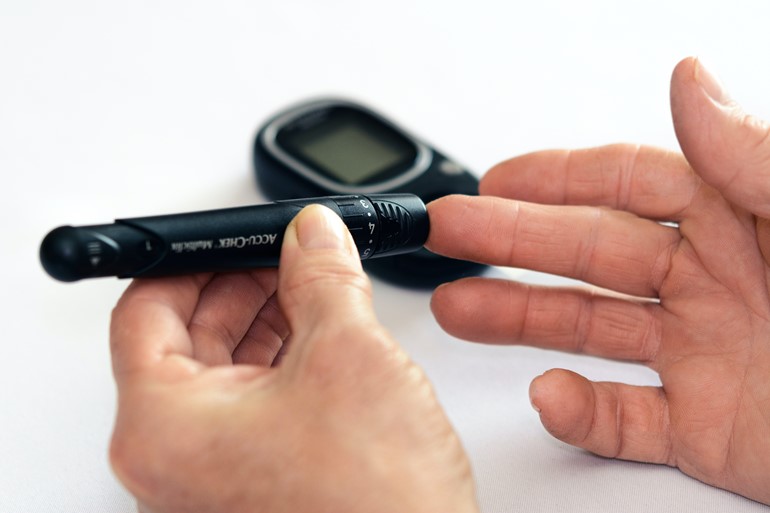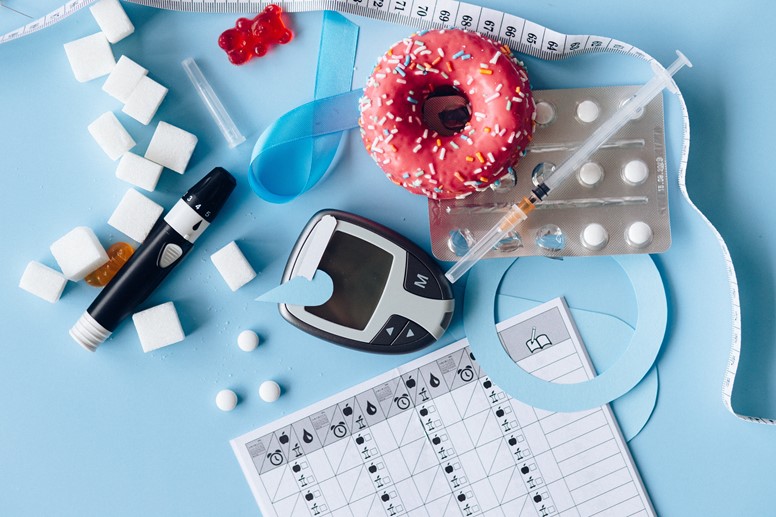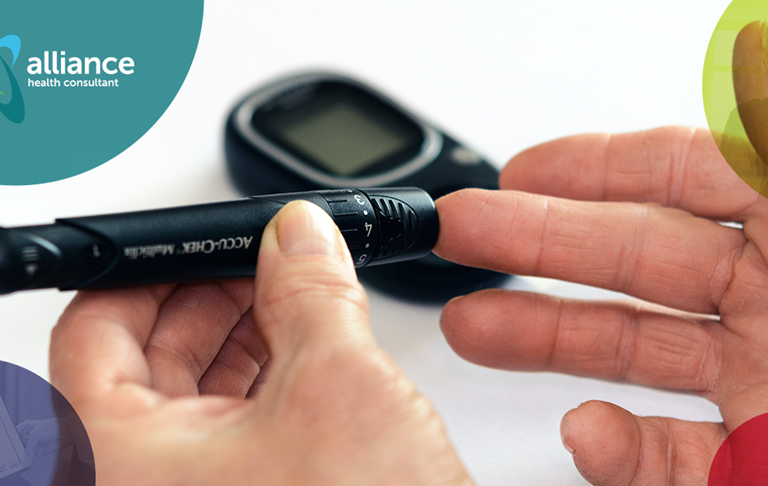Diabetes: What are the signs to look out for?
Diabetes symptoms might happen when blood sugar levels in the body become strangely raised. The most widely recognized symptoms of diabetes include:
- increased thirst
- increased hunger
- Excessive exhaustion
- increased pee, particularly around evening time
- Blurry eye sight
Symptoms can shift starting with one individual then onto the next. They likewise rely upon which kind of diabetes you have.
Symptoms of type 1 diabetes will in general start suddenly and significantly. Type 1 diabetes is regularly found in youngsters, teenagers, and youthful grown-ups. In any case, type 1 diabetes can create at whatever stage in life. Notwithstanding the symptoms recorded above, individuals with type 1 diabetes might see a speedy and abrupt weight reduction.
Type 2 diabetes is the most well-known sort. In spite of the fact that it fundamentally creates in grown-ups, it's starting to be seen all the more as often as possible in more youthful individuals. Hazard factors for type 2 diabetes incorporate being overweight, being stationary, and having a family background of type 2 diabetes. Many individuals with type 2 diabetes don't encounter any symptoms. Some of the time, these symptoms are delayed to create.
What diabetes symptoms are generally normal?
As a rule, your symptoms might appear to be innocuous. The most well-known symptoms of diabetes, like diligent thirst and weariness, are regularly unclear. When experienced all alone, symptoms, for example, these may not be anything to stress over.
In case you're encountering at least one of these symptoms, you ought to talk with your PCP about being evaluated for diabetes.

Continuous thirst
You've had many glasses of water, however you actually feel like you need more. This is on the grounds that your muscles and different tissues are got dried out. At the point when your blood sugar levels rise, your body attempts to pull liquid from different tissues to weaken the sugar in your bloodstream. This cycle can make your body get dried out, inciting you to drink more water.
Incessant Urination
Drinking extreme measures of water can make you pee more. This might lead you to drink more liquids, which intensifies the issue. Your body may likewise attempt to wipe out overabundance sugar through pee.
Outrageous cravings
You might in any case feel hungry even after you've had something to eat. This is on the grounds that your tissues aren't getting sufficient energy from the food you've eaten. In the event that your body is insulin safe or on the other hand if your body doesn't create sufficient insulin, the sugar from the food might not be able to enter your tissues to give energy. This can make your muscles and different tissues raise the "hunger banner" trying to get you to eat more food.
Unexplained weight reduction
You might eat ordinarily and continually feel hungry, yet keep on getting more fit. This can be seen with type 1 diabetes. In the event that your body isn't getting sufficient energy from the food sources that you eat, it will separate other energy sources accessible inside the body. This incorporates your fat and protein stores. At the point when this occurs, it can make you shed pounds.
Weakness
Sugar is one of your body's fundamental wellsprings of energy. On the off chance that you have diabetes, your body's failure to change over sugar into energy can prompt weakness. This can go from an overall worn-out feeling to outrageous fatigue.
Foggy Vision
Strangely high blood sugar levels can likewise prompt hazy vision. This is on the grounds that liquid can move into the eye conduit. This commonly settle once your blood sugar levels are standardized. This isn't equivalent to diabetic retinopathy, which happens over the long haul in individuals with persistently high blood sugar.
As per the National Eye Institute (NEI)Trusted Source, diabetic retinopathy is the main source of visual impairment in American grown-ups. Individuals with diabetes are additionally at higher danger for waterfalls and glaucoma.
Diseases or wounds that are delayed to mend
On the off chance that you have type 2 diabetes, your body might struggle warding off contamination. This is on the grounds that microorganisms can flourish when your blood sugar levels are excessively high. Ladies, specifically, may encounter regular vaginal yeast diseases or bladder contaminations.
High blood sugar levels can likewise prevent your body's capacity to mend cuts and scratches. This is on the grounds that high blood sugar levels can adversely affect your white blood cells. Your white blood cells are answerable for mending wounds.

What occurs if diabetes goes undetected?
Albeit certain individuals with diabetes have no symptoms or just gentle symptoms that appear to be generally innocuous, untreated diabetes can be extremely perilous.
On the off chance that your blood sugar levels become excessively high, you might foster ketoacidosis. This is more normal in individuals who have type 1 diabetes. Individuals with type 2 diabetes are less inclined to encounter ketoacidosis since insulin is as yet being delivered. This is an intense confusion and can happen rapidly. It's viewed as a health related crisis.
This condition can cause:
- deep, quick relaxing
- nausea or spewing
- stomach torment
- flushed composition
- confusion
- fruity-smelling breath
- coma
Over the long haul, complexities can create due to constantly high blood sugar levels. These include:
- kidney sickness (nephropathy)
- eye sickness (diabetic retinopathy)
- nerve harm (diabetic neuropathy)
- vessel harm
- amputations, because of nerve and vessel harm
- dental issues
- skin issues
In case you're on drugs that increment insulin levels in the body, you might be in danger for an intense intricacy called hypoglycemia, or low blood sugar. With hypoglycemia, you might insight:
- fainting
- rapid heartbeat
- sweating
- dizziness and shuddering
- confusion
- anxiety
- drowsiness
- loss of cognizance
Treating hypoglycemia rapidly is significant. Converse with your primary care physician to realize what to do in case you are in danger for hypoglycemia.
When to see a specialist?
In case you're encountering symptoms of diabetes, you should make a meeting with a medical specialist. During this time, you ought to inquire as to whether there's anything you need to do before your arrangement, for example, plan for any labs tests. This might be essential assuming your primary care physician needs to play out a fasting blood sugar test.
You ought to likewise record any symptoms you're encountering or late life changes that you've gone through. Your medical specialist can utilise this data to assist with making an analysis if necessary.
How is diabetes analysed?
Your primary care physician might utilize at least one tests to evaluate for diabetes. The glycated hemoglobin (A1C) test is generally normal. This is a blood test that demonstrates your normal blood sugar level during the past a few months. It estimates the measure of blood sugar connected to hemoglobin. The higher your blood sugar levels are, the more hemoglobin is joined to sugar.
On the off chance that you get an A1C level of 6.5 percent or higher on two separate tests, your primary care physician will analyze diabetes. Your primary care physician will analyze prediabetes if your A1C level is somewhere in the range of 5.7 and 6.4. Anything under an A1C level of 5.7 is viewed as ordinary.
On the off chance that these outcomes aren't predictable, your primary care physician will continue on to other testing alternatives. However, your primary care physician might skirt these tests on the off chance that you have certain conditions, like pregnancy, that will deliver the outcomes wrong.
In case you're determined to have diabetes, your primary care physician will probably associate you with a diabetes instructor and a dietitian. They can work with you to foster a diabetes the executives plan fit to your singular necessities.
Your administration plan will probably incorporate a mix of wholesome rules, an activity routine, and prescriptions intended to hold your blood sugar levels in line. They may likewise recommend standard blood sugar testing. It might take some experimentation to choose a treatment plan that works the best for you. Make certain to converse with your healthcare group about any inquiries or worries that you might have.

